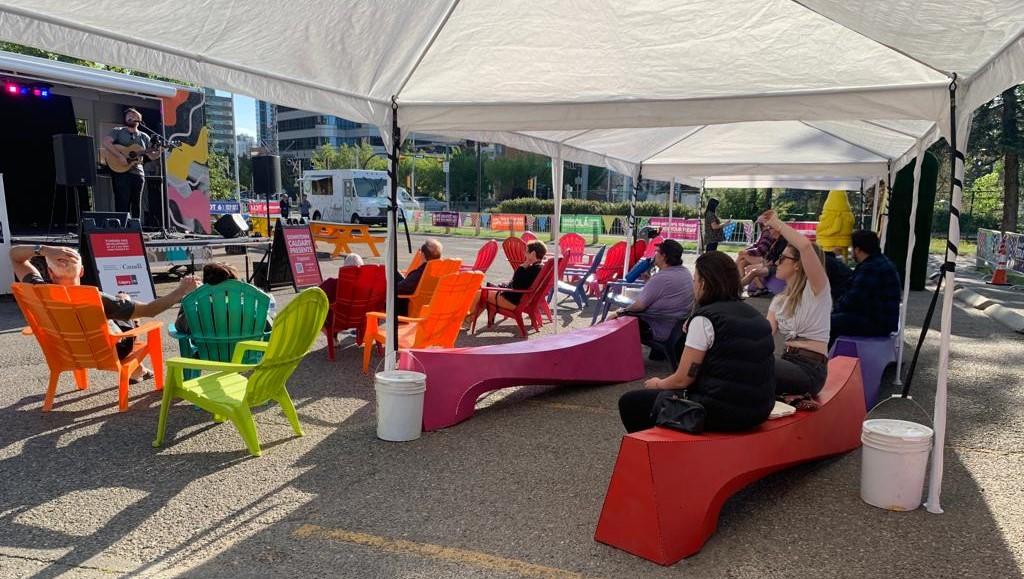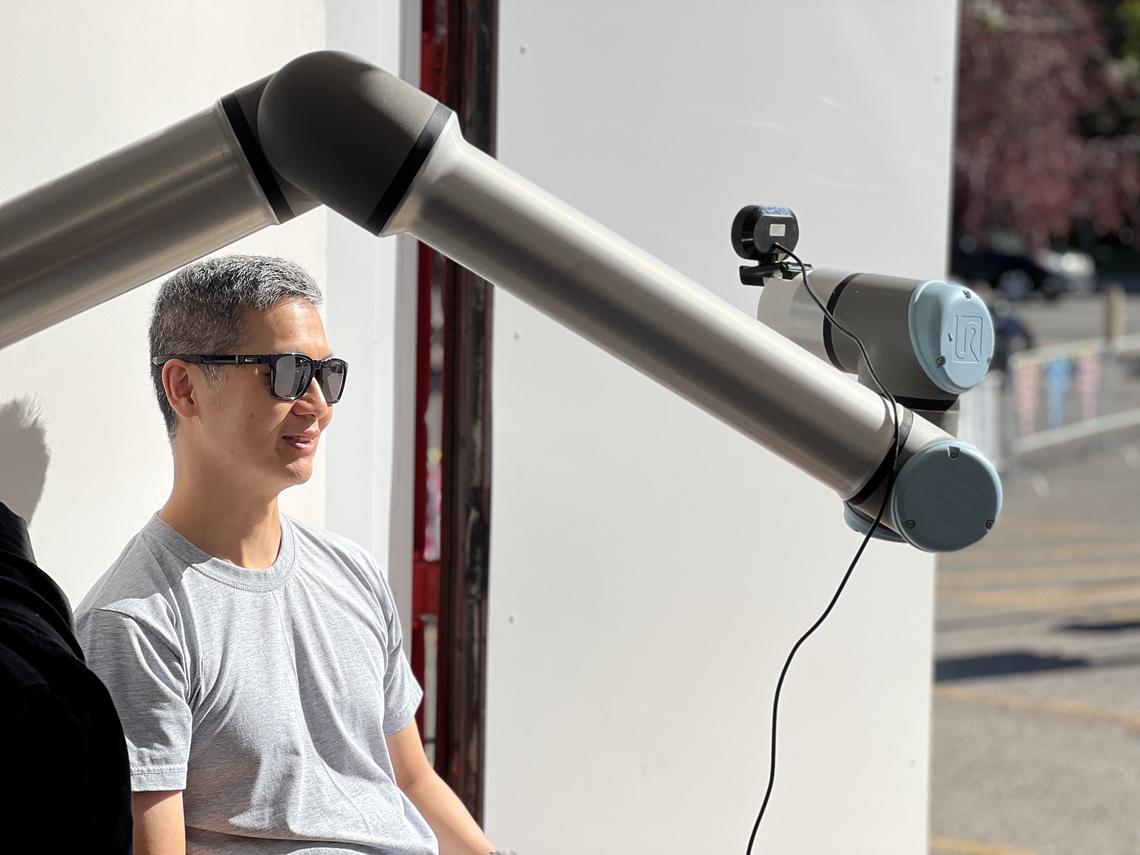Oct. 12, 2022
SAPL collaboration with The City fosters community and vibrant spaces for Calgarians

In collaboration with The City of Calgary, and as part of the activation of the underutilized downtown Lot 6 parking lot, the Laboratory for Integrative Design (LID) at the School of Architecture, Planning and Landscape created and delivered colourful and sustainable furniture, while showcasing a small cohort of creative robots as part of a complementing, and interactive, popular display, over the weekends of Sept 24 and Oct. 1.

Alicia Nahmad-Vazquez
“The activation created a very nice space for conversation,” says Dr. Alicia Nahmad Vazquez, PhD, assistant professor at SAPL and co-director of the Laboratory for Integrative Design.
“It helped build a community, as many attendees lived in adjacent downtown towers.”
These activations, which often target conspicuous and underutilized spaces around the downtown core, aim to re-imagine these areas and to repurpose them for the benefit of the community, to enable sustainability, and to spark vibrancy and a sense of community.
Nahmad Vazquez and her team did this at the Lot 6 activation, which offered music and a festive atmosphere, by providing, among other things, an opportunity for excited Calgarians to experiment with artificial intelligence in a novel and fun way.

Robot takes a photo.
Alicia Nahmad-Vazquez
The LID did this by bringing to Lot 6 its Factory-In-A-Box (FIAB) trailer, a container fitted with two industrial robots, which over the two weekends interactively showcased 3D printing, photographic imaging, and that drew creative portraits of attendees.
Although the robots had a cartoon artist as a competitor, that didn’t stop the FIAB from welcoming more than 200 visitors.
The SAPL crew also provided Calgarians with colorful spaces for interaction and relaxation, by deploying to Lot 6 strong, unique, and sustainable aluminum benches created through curve-crease folding, a technique that turns flat sheet materials into 3D shapes.

FIAB Drawing Robot
Alicia Nahmad-Vazquez
To do this, the interdisciplinary team created paper prototypes to see how they bent and folded, before translating their design idea into full-scale prototypes made from aluminum. Once a design pattern was created, it was simulated in a computer with the help of a G-code.
The patterns were then cut, and team members ground and filed the aluminum to ensure the furniture is not only comfortable and unique but also safe. The aluminum was then bent into curvatures, strengthening the structures, before being tensioned, cleaned, sprayed, and painted.
Having The City’s support in initiatives like Lot 6, which seek to revitalize Calgary’s downtown and Stephen Avenue, is very exciting, says Nahmad-Vazquez.
“The City of Calgary has embraced a lot of our activation proposals, so it’s encouraging to see that we live in a place that has a lot of young people who are open to new initiatives and to deploy them on the street,” she says.
“There’s a spirit of change and innovation that makes me think that the city has a bright future.”






